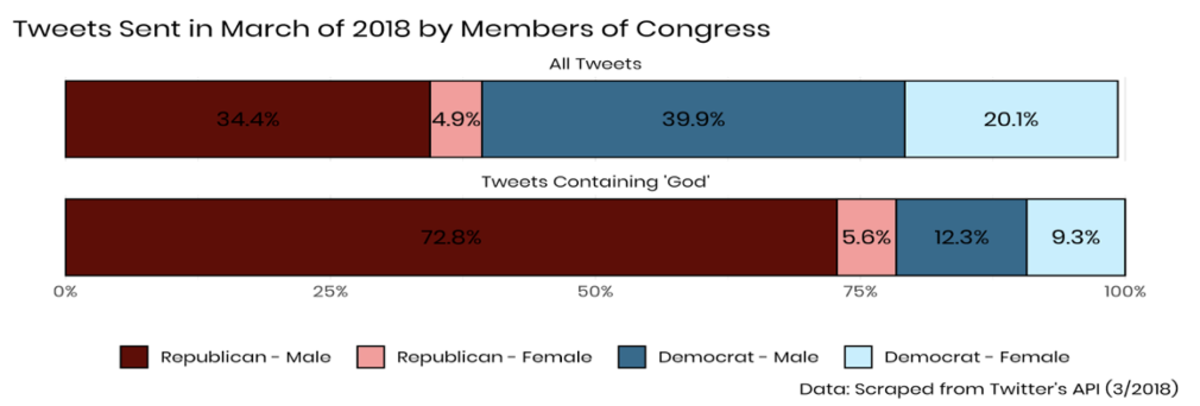Thought Polarization is Bad for the World
A Blue Ball floating in Space
We are all on a tiny blue ball floating in space together. A few hundred years ago, scientists thought that the Earth was at the center of the Universe. People believed that the World we live on was all that existed. Most people never went further than 20 miles from their homes as they were living in primitive conditions and typically, in survival mode. Today, we know better. Many of us have traveled to the other side of the planet and have experienced different cultures and understand that people are basically similar and are very good in every place we visit.
Fundamentally, human beings all want shelter, food, air, and admiration. The village mentality that our ancestors had was all about survival and protection to make sure that their basic needs were being met. In modern times, we have moved this village mentality to team sports, and people like to affiliate themselves with professional and college sports teams to develop a connection to a "village" label of sorts. When politics becomes a team sport, and the opponent is dehumanized, then we get into a situation where society begins making emotional decisions, rather than rational ones, where respect is shared among everyone. The thought police become the keepers of reality and everyone is looking over their shoulders to see if what they are saying is going to damage their careers, or standing in society.
Social Media and the New Paradigm of Popular Thought
For the first time in history, we have an eternal recording of everyone's thoughts and ideas that can be shared and used when the time is right. People keep living diaries of their lives, at least the highlights, on social media and share them with the public. Most people have their own political views and a lot of people are not afraid to share these in the social media format. Typically, a lot of emotion is involved with these postings, and many writers assume that the opinions they are writing are factually correct, and that any disagreements with their perspective is a form of harassment.
It has always been considered bad taste to discuss politics and religion in social circles and this really continues to be an issue. People view social media in different ways. Many people feel that social media is the best way for them to keep in touch with family and make those important social connections. Others use it as a place to air out their ideas and share their thoughts. We have all heard stories of individuals posting controversial opinions on the internet and then losing their jobs for this. This is really a sad state of affairs. If someone has an idea that is repugnant to others, short of criminal conspiracy, then perhaps you do not want to associate with them. Maybe their viewpoint deserves criticism or discussion to find out if they expressed themselves accurately? In either case, it is unreasonable to assume that people deserve to lose their employment for exercising their right to free speech.
Indeed, it should be illegal for any government agency, or government funded organization to discipline or fire an employee for exercising their rights, as long as they do their jobs at an acceptable level. How can a government grant rights, and then choose what is speech that they disagree with? Again, if it is hate speech, or is a criminal conspiracy, then yes, there should be repercussions. For the things that we just disagree with, we need to be tolerant of other views and have logical discussions to be a well-informed electorate.
Politicians use social media and they put their ideas out there for the consumers to consume. They sometimes say some very strongly worded things that may feel very insulting to whole sections of our population. This is not really nice, but yes they are allowed to do this, and this includes people with all political views. If a person is reading these postings, and then "Likes" one of them, this should not be an offense to others that would warrant serious repercussions. We need to start fighting bad thoughts with smarter thoughts and not try to destroy people for having ideas that we vehemently disagree with.
Social media keeps our thoughts live, long after we remember thinking them, and in time, our own viewpoints change. How many politicians, and citizens have shifted political parties over time? Are we going to hold them accountable for views that have evolved, shifted and changed? Do we allow people to experience personal growth or do we hold everyone accountable for the thoughts they had as an adolescent. Personally, I am very glad that social media did not keep all of my ideas alive from the time I was 13 years old. I have changed and grown a great deal, and have developed much more respect for people than I had as an adolescent.
Emotion and Logic
As we move further into the 21st century, it is clear that technology will only continue to increase in its' impact on our society. We need to re-think our concepts of humiliation of "bad thinkers", and our tearing down of anyone who dares to try and be a leader. Disagreement is healthy and conversations around serious subjects need to happen and be powerful arguments at times. Our political class need to learn to be role models of acceptance and be willing to characterize each other by the titles that politicians used to earn. At one time in our recent past, they were referred to as the "honorable". This title has gone out of use, because they do not use it when addressing each other. Instead, many of them emotionally vilify each other and dehumanize each other. This trickles down to those who identify with their viewpoints and creates what they affectionately call their "base", but what it really represents, is their fan club. We do not need political fan clubs, we need courteous logical discourse and the best decisions to be made to guide us safely as we share this tiny blue ball in space. Where are the adults in the room?
© 2019 Scott P Davis








